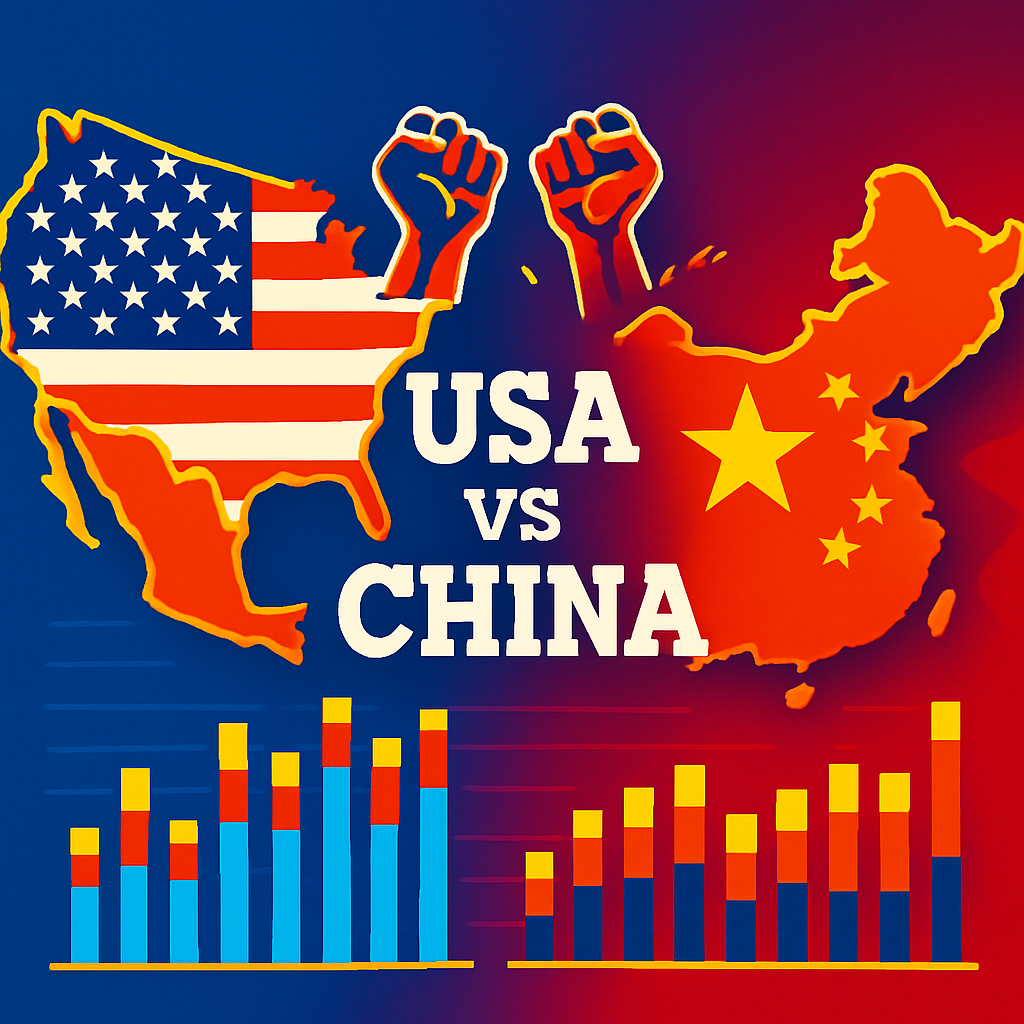China stock market
China’s stock market has underperformed for years, helping to explain why Chinese households save far more and spend far less than counterparts in the West. Even after a recent upswing, key Chinese indexes are only back to levels seen after the 2015 crash, meaning equity gains have been minimal. For example, a $10,000 investment in the US S&P 500 index a decade ago would have more than tripled, while the same amount in China’s CSI 300 index would be worth roughly $13,000 today
In other words, weak stock returns have nudged Chinese consumers toward saving rather than spending. This chronic underperformance creates headaches for Chinese leaders who need consumer spending to drive growth as well as foreign leaders like Donald Trump, who see the trade imbalance rely in part on weak domestic demand in China

Several structural factors lie at the heart of the problem. China’s stock exchanges were originally set up about 35 years ago to channel household savings into state run infrastructure projects, like roads and ports
As a result, the exchanges have traditionally prioritized raising money over rewarding investors. This mismatch has led to an oversupply of listed shares and lax post-listing practices, such as poor disclosure or managerial misconduct, which erode long-term returns. As one market veteran notes, “China’s capital market has long been a paradise for financiers and a hell for investors”
- Historic low returns: Over the past decade the CSI 300 index is barely above its post-bust 2015 level, meaning gains have been far below global benchmarks
- High savings rate: Chinese households save about 35% of their income roughly double the rate in Western economies partly because they lack confidence that stocks will grow their wealth
- State-driven markets: Many Chinese listed companies are state owned and focus on government goals. They often reinvest profits rather than distributing dividends, so ordinary investors see little payoff
- Oversupply of IPOs: China’s regulators encouraged a flood of initial public offerings (IPOs) to finance economic plans. In 2022 China became the world’s largest IPO market, but this meant many low-quality firms went public
Why Consumers Save More, Spend Less
The poor performance of the China stock market directly affects consumer behavior. When stock investments rarely pay off, people are less inclined to buy cars, houses or consumer goods on borrowed money. Instead they park money in the bank. Bloomberg analysts note that a lackluster stock market has “nudged” Chinese savers toward conservative investments
In concrete terms, Chinese investors have watched decades of disappointing equity gains: one report highlights that even after China’s markets rebounded somewhat, the CSI 300 is up less than 7% this year. By contrast, US and European stock benchmarks have soared thanks to technology and post-pandemic recovery.
Related This: https://financialgoals.online/stock-market-mystery/
This underperformance helps explain China’s very high national savings rate of about 35% of income. Instead of trusting stocks to build wealth, many people simply hoard cash. One asset manager, Chen Long, warned on Chinese social media that many retail investors entering the market “end up poorer”
He points out that state companies often answer to the government, not shareholders, and some private entrepreneurs ignore small investors. In short, when ordinary people see the China stock market favor big interests over small savers, they naturally hold onto their cash.
Structural Challenges and Investor Woes
Market experts emphasize that the root causes are structural. Decades ago, China’s exchanges were designed mainly as financing channels for big projects. They did not prioritize stock performance or investor protection. For example, after initial listings, many companies frequently issue more stock or insider sales dilute share value. In many cases even blatant IPO fraud could go unchecked due to weak regulators.
A Beijing economist laments that exchanges “are motivated to fulfill the government’s call for increasing companies’ financing” but not much interested in “protecting investors’ interests”. This dynamic has made China’s market a risky place for average investors. Retail traders often speak of “stepping on landmines” when small firms suddenly crash or get delisted. For instance, Beijing Zuojiang Technology a tech startup went public in 2019, only to be delisted after regulators found it had misled investors about its products.
The fallout from such episodes is real. When stock prices suddenly collapse or disappear, people lose faith. Combined with underwhelming gains in legitimate companies, this reputation has kept China’s stock market from spurring broad consumer confidence

Government Actions and Reforms
Chinese authorities have recognized these issues and say they want to improve the situation. In recent policy meetings, the Communist Party high command explicitly pledged to “stabilize … stock markets” and make domestic capital markets “more attractive and inclusive”. In practice, this means both short- and long-term measures:
- More oversight on IPOs: Regulators have begun filtering out very weak companies from listing. The number of new IPOs fell sharply in 2023, to about one-third of the 2022 peak.
- Crackdown on fraud: Authorities are more aggressively investigating and punishing financial fraud, hoping to prevent big stock-price crashes.
- Dividend payouts: Listed firms in Shanghai and Shenzhen handed out roughly 2.4 trillion yuan ($334 billion) in cash dividends in 2024 — up about 9% from the year before. Paying more profits to investors is one way to reward shareholders.
- Share buybacks: Some major Chinese companies have started repurchasing their shares. However, this remains tiny: CSI 300 firms spent only 0.2% of their market value on buybacks in 2024, compared with nearly 2% by S&P 500 companies. So buybacks are still limited.
- Support for tech listings: To raise capital for strategic industries, regulators are fast-tracking more technology and growth-company IPOs. For the first time, unprofitable startups are being allowed to list on China’s Nasdaq-style STAR Market and on ChiNext. This fits China’s goal of competing with the US in fields like AI and semiconductors, but it also raises worries about repeating past mistakes.
These steps show some progress. For example, investment strategist Ding Wenjie notes that post-IPO requirements in China have become “stricter, in terms of reliability, transparency, or information disclosure”. Regulators seem willing to rein in the worst excesses of the financing-driven approach.
Investor Confidence and Sentiment
Even with reforms, Chinese investors remain skeptical. Many ordinary savers have seen too many broken promises and losses. Chief investment officer Hao Hong says the only thing that can really revive confidence is a strong stock market rebound, something economists quietly discuss in private meetings. In other words, talk of reform must eventually lead to real equity gains for everyday people.
A few forces weigh on sentiment:
- Income inequality and insecurity: China’s social safety net is still imperfect, and many households feel financial insecurity. That encourages precautionary savings.
- Property market slump: A weak real estate sector has kept wealth creation low, further pushing people toward savings.
- Trade tensions: With the US-China trade war still simmering, export industries face headwinds, which can discourage consumer spending.
In this context, the China stock market could be a key part of the solution or the problem. If stock prices recover, people may feel wealthier and spend more. But if structural issues persist, consumer caution will likely remain.
The Road Ahead
Experts warn that piecemeal fixes may not be enough. Some investor advocates note that authorities often prioritize companies getting financing over investors getting returns . Reviving the market’s role as a true wealth-builder would require deeper changes in corporate culture and regulation. For example, market strategist Hebe Chen cautions that rapidly relaunching IPOs without fixing corporate governance will only “add volume without restoring investor trust”
Investment strategist Dong Chen adds that even as more startups list, “the entire regulatory environment is still not up to the task of delivering the best out of those companies” In other words, China needs not just capital, but better incentives for companies to be profitable and shareholder-friendly.
For now, the China stock market remains in limbo: it is a potential engine for funding China’s technological goals, but also a source of frustration for investors. The outcome matters for everyone. Chinese leader Xi Jinping wants households to spend more to hit GDP goals, and US politician Donald Trump hopes a strong China economy might ease trade disputes. Yet without fundamental improvements, the market may continue to push Chinese savers to hide cash away. Only time will tell if policy changes can convert the stock market into genuine wealth creation.



